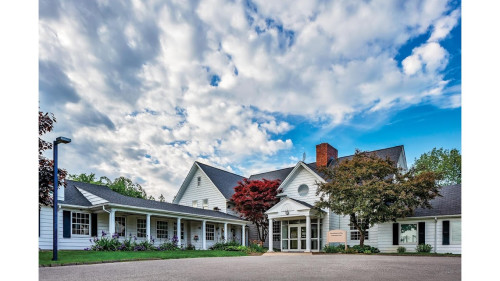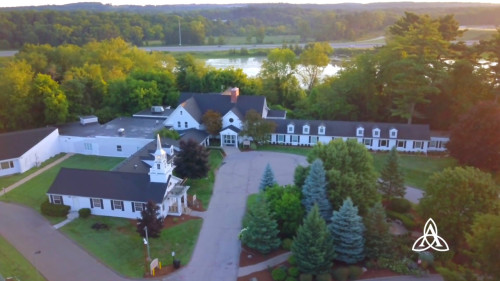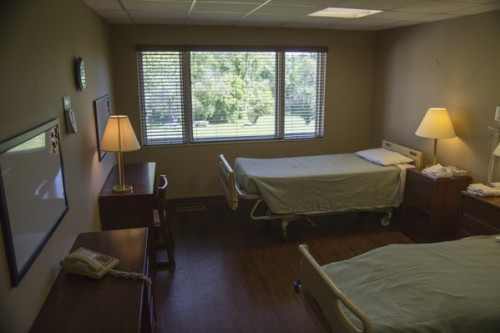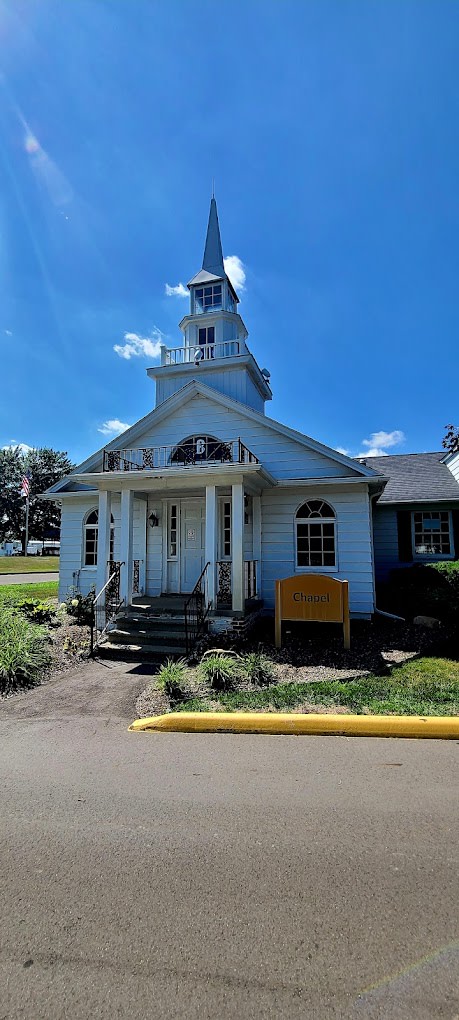






Ascension Brighton Center for Recovery
Treatment Focus
This center treats substance use disorders and co-occurring mental health conditions. Your treatment plan addresses each condition at once with personalized, compassionate care for comprehensive healing.
Primary Level of Care
Offering intensive care with 24/7 monitoring, residential treatment is typically 30 days and can cover multiple levels of care. Length can range from 14 to 90 days typically.
Claimed
Recovery.com has connected directly with this treatment provider to validate the information in their profile.
Treatment Focus
This center treats substance use disorders and co-occurring mental health conditions. Your treatment plan addresses each condition at once with personalized, compassionate care for comprehensive healing.
Primary Level of Care
Offering intensive care with 24/7 monitoring, residential treatment is typically 30 days and can cover multiple levels of care. Length can range from 14 to 90 days typically.
Provider's Policy
When scheduling an admission assessment, a Customer Service Representative will complete a thorough insurance verification; discuss in general the costs of treatment; and review the details of your insurance plan with you, including how much of the cost of your stay is covered. We accept most commercial addiction-treatment insurance policies and managed care plans.
Ascension Brighton Center for Recovery
Ascension Brighton Center for Recovery
About Ascension Brighton Center for Recovery
Ascension Brighton Center for Recovery has been providing expert and quality care for over 60 years as one of the leading substance abuse treatment facilities in the nation. They provide comprehensive and personalized treatment programs with detox, residential, outpatient, and aftercare services. They offer addiction education with an extensive program for families and prevention services for children affected by substance abuse.
Continuum of Care
Brighton offers a full range of care for adults experiencing substance abuse disorders. Their detox program combines round-the-clock care with licensed and professional nursing staff with medication-assisted treatment (MAT) in a nurturing and comfortable environment. In addition to addressing the physical discomfort of withdrawal, Brighton offers specialized addiction counseling and 12-step modalities as part of the detox process.
Inpatient treatment at Brighton offers support and individualized treatment to adults who are struggling to achieve sobriety in their everyday environments. Experienced and credentialed staff review medical, psychiatric, and substance abuse history to tailor a treatment program and level of care that best suits the individual. Residential treatment focuses on group and individual therapy, recreational therapies, and addiction education and counseling.
Specialized Outpatient Programming
In addition to residential care, Brighton offers outpatient programs that vary in levels of care and specialties. Their intensive outpatient program (IOP) meets 3 times a week for 3 hours per day of group therapy and addiction education. Their program offers flexibility with daytime, afternoon, and evening rehabilitation sessions.
A specialized women’s program brings peers together to address the unique challenges faced by women experiencing addiction. A group therapy setting addresses topics such as the impact of past trauma, boundary setting, relationship building, processing and regulating difficult emotions, goal setting and intentions, recovery skills, and 12-step philosophies.
An early recovery program offers support designed for clients who have made significant progress through their inpatient treatment, and helps patients reintegrate into their daily lives while continuing treatment on an individual outpatient basis.
Specialized treatment is available specifically for healthcare professionals, offering professional treatment from addiction specialists with personal experience and expertise. This program addresses the stress and trauma experienced by healthcare professionals that can lead to substance abuse, and provides innovative and personalized addiction treatment for physicians, nurses, first responders, and more.
Ongoing Support
Brighton Recovery offers extensive ongoing support and lifelong recovery services. They provide aftercare treatment facilitation by assisting clients with finding services in their area or community. On-campus aftercare is also available with transitional sober living homes for men and women. Brighton has a 16-bed facility for both men and women that provides a safe, comfortable, and structured sober environment that allows clients continued access to outpatient treatment while they gradually gain greater independence through counseling, volunteer opportunities, and job-skills training.
Their ‘Tune Up’ events celebrate alumni’s and their continuing sobriety and provide clients with long-term support . Tune Up events take place 3 times per year and recognize milestones with coining ceremonies and an opportunity to connect with peers, listen to inspirational speakers, play games, and encourage others in long-term sobriety.
Prevention Services
Prevention services are available for children and adolescents ages 7-12. The children’s program at Brighton provides specialized education and individual and group therapy tailored to children who have a parent or loved one experiencing a substance abuse disorder.
Similar programs are also available for family members and loved ones, prompting family members to educate themselves on addiction and get involved with their loved one’s recovery. Friends and family join clients in treatment in special lectures, discussion groups, and 1-on-1 sessions to address concerns and strengthen support systems.
Center Overview
Treatment Focus
This center treats substance use disorders and co-occurring mental health conditions. Your treatment plan addresses each condition at once with personalized, compassionate care for comprehensive healing.
Joint Commission Accredited
The Joint Commission accreditation is a voluntary, objective process that evaluates and accredits healthcare organizations (like treatment centers) based on performance standards designed to improve quality and safety for patients. To be accredited means the treatment center has been found to meet the Commission's standards for quality and safety in patient care.
Supportive Medication for Recovery
Medication-Assisted Treatment (MAT) is an evidence-based approach that pairs FDA-approved medications with counseling to treat addiction. The medications are used to reduce cravings, ease withdrawal symptoms, or block the effects of substances. More about MAT
Methadone
Naltrexone
Buprenorphine
Note: Treatment centers offer different forms of MAT—such as oral tablets, dissolvable films, or monthly injections—and their policies can vary based on state regulations, provider preferences, and insurance coverage. Because of these differences, it's best to contact the center directly to learn what options are available and what might be right for your situation.
Insurance Accepted
Cash Pay Rates
Estimated Cash Pay Rate
Center pricing can vary based on program and length of stay. Contact the center for more information. Recovery.com strives for price transparency so you can make an informed decision.
Levels of Care







Your Care Options
Specializations
Detox
Detox fully and safely removes toxic substances from the body, allowing the next steps in treatment to begin with a clean slate.
Drug Addiction
Drug addiction is the excessive and repetitive use of substances, despite harmful consequences to a person's life, health, and relationships.
Residential
In a residential rehab program, patients live onsite, with access to daily treatment and 24-hour care. An average stay is 30-90 days.
Who We Treat
Men and Women
Men and women attend treatment for addiction in a co-ed setting, going to therapy groups together to share experiences, struggles, and successes.
Professionals
Busy, high-ranking professionals get the personalized treatment they need with greater accommodations for work, privacy, and outside communication.
Approaches
Holistic
A non-medicinal, wellness-focused approach that aims to align the mind, body, and spirit for deep and lasting healing.
Individual Treatment
Individual care meets the needs of each patient, using personalized treatment to provide them the most relevant care and greatest chance of success.
Medical
Medical addiction treatment uses approved medications to manage withdrawals and cravings, and to treat contributing mental health conditions.
Twelve Step
Incorporating spirituality, community, and responsibility, 12-Step philosophies prioritize the guidance of a Higher Power and a continuation of 12-Step practices.
Therapies
1-on-1 Counseling
Patient and therapist meet 1-on-1 to work through difficult emotions and behavioral challenges in a personal, private setting.
Art Therapy
Visual art invites patients to examine the emotions within their work, focusing on the process of creativity and its gentle therapeutic power.
Family Therapy
Family therapy addresses group dynamics within a family system, with a focus on improving communication and interrupting unhealthy relationship patterns.
Life Skills
Teaching life skills like cooking, cleaning, clear communication, and even basic math provides a strong foundation for continued recovery.
Medication-Assisted Treatment
Combined with behavioral therapy, prescribed medications can enhance treatment by relieving withdrawal symptoms and focus patients on their recovery.
Music Therapy
Singing, performing, and even listening to music can be therapeutic. Music therapy sessions are facilitated by certified counselors.
Nutrition Counseling
Nutritious food helps patients heal from within, setting them up for mental and bodily wellness as they learn about healthy eating.
Conditions We Treat
Schizophrenia
Schizophrenia is a serious mental health condition that causes hallucinations, delusions, and disordered thinking.
Anxiety
Anxiety is a common mental health condition that can include excessive worry, panic attacks, physical tension, and increased blood pressure.
Depression
Symptoms of depression may include fatigue, a sense of numbness, and loss of interest in activities. This condition can range from mild to severe.
Suicidality
With suicidality, a person fantasizes about suicide, or makes a plan to carry it out. This is a serious mental health symptom.
Trauma
Some traumatic events are so disturbing that they cause long-term mental health problems. Those ongoing issues can also be referred to as "trauma."
Substances We Treat
Alcohol
Using alcohol as a coping mechanism, or drinking excessively throughout the week, signals an alcohol use disorder.
Co-Occurring Disorders
A person with multiple mental health diagnoses, such as addiction and depression, has co-occurring disorders also called dual diagnosis.
Cocaine
Cocaine is a stimulant with euphoric effects. Agitation, muscle ticks, psychosis, and heart issues are common symptoms of cocaine abuse.
Drug Addiction
Drug addiction is the excessive and repetitive use of substances, despite harmful consequences to a person's life, health, and relationships.
Heroin
Heroin is a highly addictive and illegal opioid. It can cause insomnia, collapsed veins, heart issues, and additional mental health issues.
Psychedelics
Hallucinogenic drugs—like LSD—cause euphoria and increased sensory experiences. When abused, they can lead to depression and psychosis.
Methamphetamine
Methamphetamine, or meth, increases energy, agitation, and paranoia. Long-term use can result in severe physical and mental health issues.
Opioids
Opioids produce pain-relief and euphoria, which can lead to addiction. This class of drugs includes prescribed medication and the illegal drug heroin.
Languages
Aftercare
Care Designed for Your Needs
Personal Amenities
Amenities
Special Considerations
Center Pets
Addiction and mental health facilities with pets allow patients to interact with friendly dogs, cats, horses, and in some cases, even dolphins.
Gender-specific groups
Patients in gender-specific groups gain the opportunity to discuss challenges unique to their gender in a comfortable, safe setting conducive to healing.
Healthy Meals are provided
Great food meets great treatment, with providers serving healthy meals to restore nutrition, wellbeing, and health.
Activities
What people are saying
Treatment
3.7
Accommodations
3.8
Food & Nutrition
3.7
Value
3.7
Betty
Reviewed 02/27/23
Review from Rehabs.com
Erin
Reviewed 07/24/25
Review from Rehabs.com
Anonymous
Reviewed 05/21/18
Review from Rehabs.com
Gregory
Reviewed 05/26/19
Review from Rehabs.com
KCL
Reviewed 12/12/18
Review from Rehabs.com












